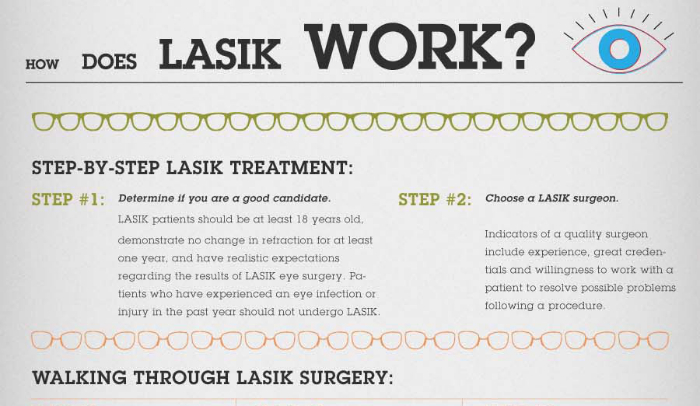Is SMILE Eye Surgical Treatment The Right Option For You? Important Factors To Consider And Insights
Is SMILE Eye Surgical Treatment The Right Option For You? Important Factors To Consider And Insights
Blog Article
https://lasikrequirements28406.digitollblog.com/29058193/is-smile-eye-surgery-the-right-selection-for-you-crucial-factors-to-consider-and-insights Composed By-Banke Cochran
If you're considering SMILE eye surgical procedure, ponder this: are you prepared to accept potential aesthetic liberty, or does the thought of any kind of risks make you hesitate? Your decision will certainly rest on a careful balance of evaluating the benefits against the unpredictabilities. It's important to dig deeper into the nuances of SMILE surgery to make an educated option that lines up with your aesthetic goals.
Comprehending SMILE Eye Surgical Procedure
When taking into consideration SMILE Eye Surgical procedure, it's important to understand the procedure and its advantages. SMILE, which stands for Small Cut Lenticule Removal, is a minimally intrusive laser eye surgery that fixes typical vision troubles like myopia (nearsightedness).
During the treatment, your eye surgeon will utilize a femtosecond laser to produce a little incision in your cornea. With https://affordable-eye-surgery71605.targetblogs.com/29777339/meeting-with-an-ophthalmologist-usual-mistaken-beliefs-regarding-cataract-surgical-procedure , a little disc of cells called a lenticule is removed, reshaping the cornea and fixing your vision.
One of the crucial benefits of SMILE Eye Surgery is its fast recovery time. Several individuals experience improved vision within a day or more after the treatment, with very little pain.
Furthermore, SMILE is known for its high success price in offering long-term vision modification. Unlike LASIK, SMILE does not require the creation of a flap in the cornea, reducing the danger of problems and allowing for a more stable corneal structure post-surgery.
Comprehending the procedure and its benefits is important when considering SMILE Eye Surgical procedure for vision adjustment.
Advantages and disadvantages of SMILE
Considering SMILE Eye Surgery for vision modification includes various advantages and potential downsides.
Among the primary pros of SMILE is its minimally invasive nature, as it involves a little cut and generally causes fast recuperation times. The procedure is likewise recognized for causing minimal discomfort and dry eye symptoms post-surgery compared to various other vision modification techniques. In addition, SMILE has been revealed to supply outstanding visual end results, with numerous people attaining 20/20 vision or better.
On the other hand, a prospective con of SMILE is that it might not appropriate for individuals with extreme refractive errors, as the therapy range is somewhat minimal contrasted to LASIK. An additional factor to consider is that the discovering curve for specialists executing SMILE can influence the availability of skilled companies in specific areas.
It's important to evaluate these pros and cons meticulously when deciding if SMILE is the best option for your vision improvement requirements.
Figuring Out Eligibility for SMILE
To establish if you're eligible for SMILE eye surgery, your ophthalmologist will certainly perform a thorough assessment of your eye health and wellness and vision needs. During this assessment, factors such as the security of your vision prescription, the thickness of your cornea, and the total health and wellness of your eyes will be evaluated.
Normally, candidates for SMILE more than 22 years of ages, have a stable vision prescription for at the very least a year, and have healthy corneas without conditions like keratoconus.
Your optometrist will additionally consider your general eye wellness, any existing eye problems, and your way of life needs to identify if SMILE is the appropriate selection for you. It's essential to connect any type of specific visual demands or problems you may have during this examination to make certain that the therapy straightens with your assumptions.
If you aren't qualified for SMILE, your optometrist might advise different vision improvement choices that better match your specific needs and eye health and wellness condition.
Conclusion
Eventually, choosing whether SMILE eye surgery is right for you calls for careful consideration of your individual eye health and wellness and aesthetic demands. Seek advice from your ophthalmologist to establish your eligibility for the treatment and evaluate the possible advantages and downsides. Keep in mind to communicate any type of worries or concerns you might have during the examination process to make an informed choice regarding your vision improvement choices.
